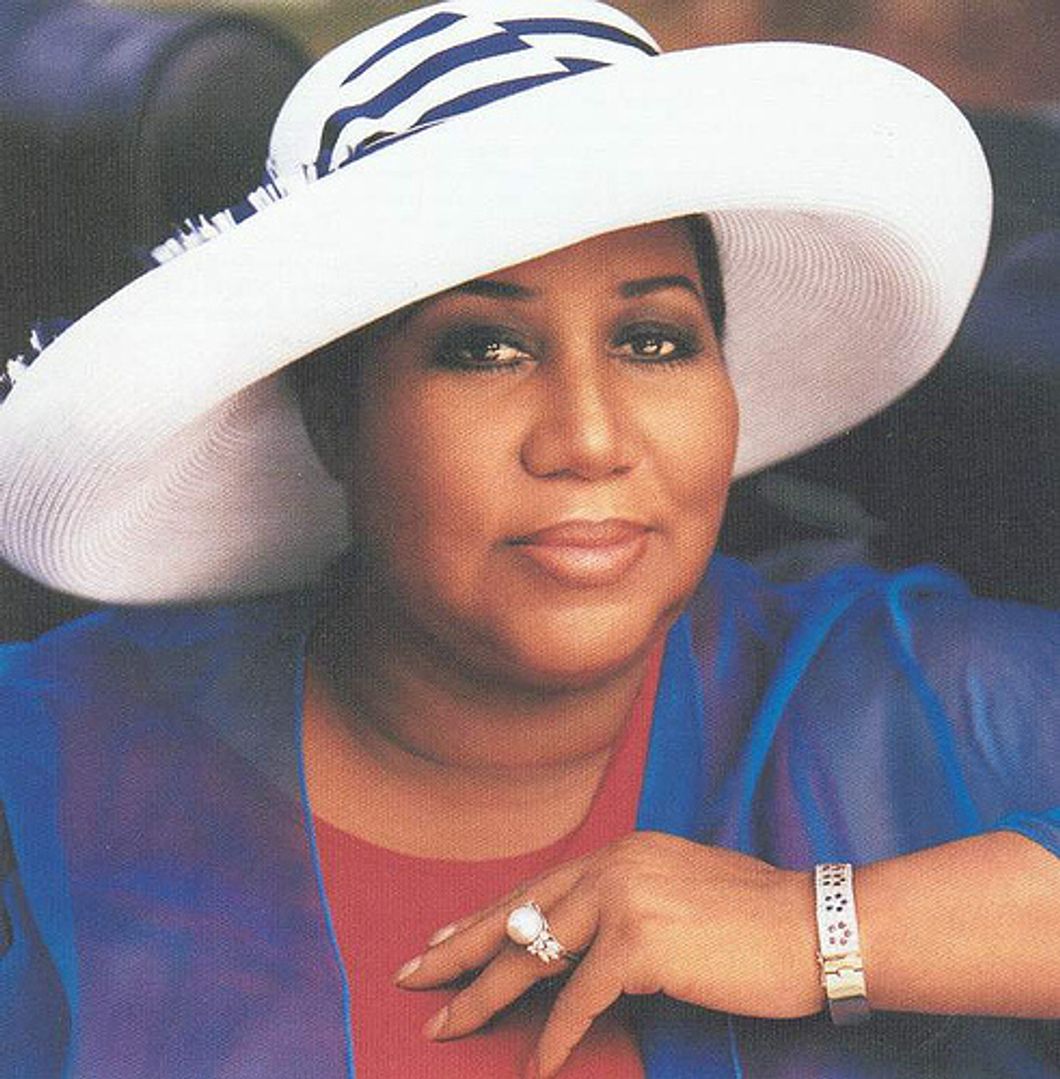Earlier this week the music community lost a legend, Aretha Franklin. Aretha Franklin gave to the music community in multiple ways. Paving the path of women as well as women of color and for other black artists. Her dedication to helping others and her gift lead her to a role that she so elegantly took on. Without Franklin's hits and profound voice, the Civil Rights movement as well as the Women's Rights movement may have not excelled at the rate it did.
Also known as the Queen of Soul, Franklin began her career singing for her father's gospel caravans at the young age of 12. Her formal training was through trial and error, learning to trust her ear. Her self-teaching paid off, as she received offers from multiple record companies including Sam Cooke's RCA as well as Columbia Records. Franklin would end up being represented by four different record labels throughout her career.
But beyond her sweet and strong voice and numerous hits, Franklin was a profound Civil Rights activist as well as a Women's Rights activist. Her powerful voice landed her a job singing and traveling with Dr. Martin Luther King Jr., and ultimately led Franklin to sing at the preacher's funeral. Her music showcased the struggles of living as a black woman in America. Songs like R.E.S.P.E.C.T, (You Make Me Feel Like) A Natural Woman, Sisters Are Doin' it For Themselves, and Think all told the struggles of those facing oppression, and at the time was taken on mostly by the black community and women.
While Franklin's music played an enormous in both movements, she never boasted about her accomplishments and help she gave to each respective movement. When asked by reporters of her efforts she often shied away from being called one of the biggest influencers of the movements. During the Civil Rights movement, you would see Dr. King on the television and on the radio once or twice a day, however, with Franklin's music it was constantly playing. Therefore, the message was constantly fed to the American people whether they supported it or not, or if they realized it or not.
Her lyrics gave first-hand insight into the world through her eyes and the eyes of people who were like her or shared the same struggles as her. Her lyrics were not exclusive to black women, Franklin lyrics have connected people of various backgrounds who are facing various kinds of oppression. Ultimately, Aretha Franklin's music connects human beings, showing us that no matter our gender, religion, race, or sexual orientation, at the end of the day we all want to be seen and treated as equals.





















